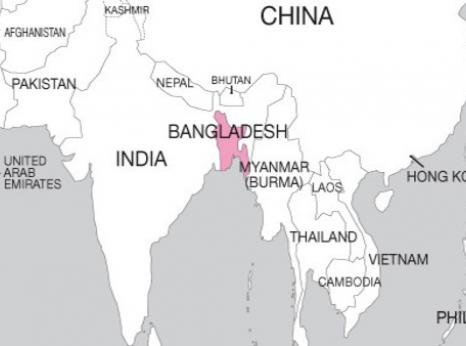Bangladesh: Teenage Girl Detained For Facebook Post

Dipti Rani Das, a 17-year-old girl, was arrested in Dinajpur, Bangladesh, on 28 October 2020 under the country’s draconian Digital Security Act (2018) for a Facebook post which contained a photograph of a woman keeping the Islamic holy book Quran in between her thighs.
Concerned over the impact that the Facebook post may have had on Dipti Rani Das, her father went to the police station with his family to seek a resolution upfront on the afternoon of 28 October 2020. There, they saw a gathering of about 100 religious clerics who came to file a case against her. They apologized verbally to the people present at the police station and to the Muslim community for the Facebook post, which some people at the police station livestreamed on Facebook. The family also submitted a written apology to the local police chief. The livestreamed apology further agitated some people in the neighbourhood, who then attacked the home of Dipti Rani Das and her family later that evening.
Afraid of further attacks, Dipti Rani Das’s father tried to send her daughter away for some days to a relative’s home by train. However, she was stopped at the train and taken to the police station by several individuals who demanded that she be punished for posting the photograph.
Arrested on 28 October 2020, she has since been in detention at a correction facility in Rajshahi, a northern district in Bangladesh, and could face up to seven years in jail if convicted. After being denied bail three times at a lower court, a High Court granted her bail on 11 May 2021. However, the bail order was stayed through an appeal by the deputy commissioner of Dinajpur, her home district.
The UN Human Rights Committee, which monitors the implementation of the International Covenant on Civil and Political Rights, stated that “prohibitions of displays of lack of respect for a religion or other belief system, including blasphemy laws, are incompatible with the Covenant”, except in the specific circumstances when it amounts to advocacy of hatred that incites violence, hostility or discrimination.
An afficionado of Humayun Ahmed’s novels, Dipti Rani Das loves painting and writing stories. She wanted to study science, but her family couldn’t afford paying for it. She had enrolled in arts for her first year at the Parbatipur Government College in August 2020. Since her detention, Dipti Rani Das has lost her ability to pursue her education and faces further risk of harassment and discrimination. “I wish that my daughter has the opportunity to freely move in the society, complete her education and build a future. I request the government to relieve her from this case in consideration of her future,” her father told Amnesty International.
In a July 2021 report, Amnesty International documented a wide range of human rights violations committed by the Bangladeshi security agencies in the pretext of containing false, offensive, defamatory or derogatory information online. The human rights organization called on Bangladesh’s government to urgently repeal or substantially amend the 2018 Digital Security Act and end the crackdown on people’s right to freedom of expression online.